Flower Glossary is reader-supported. When you buy through links on our site, we may earn an affiliate commission.
Winter brings cooler temperatures and snow, but it also brings beautiful flowers like the snowdrop. Our guide features 13 types of winter flowers that are sure to delight.
Table of Contents
Camellia
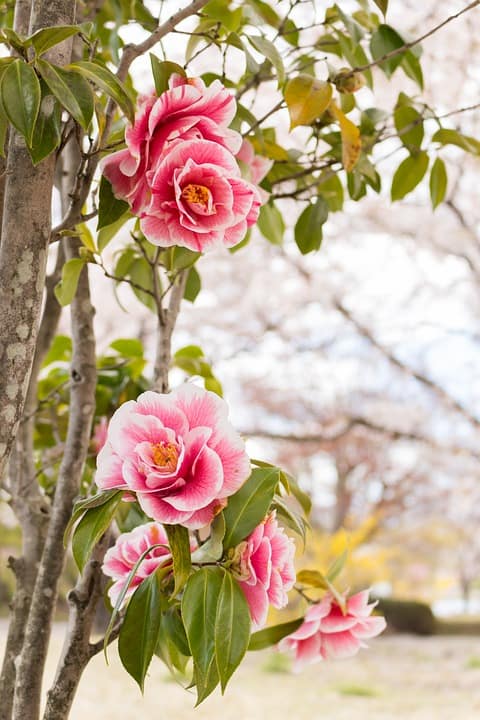
Camellia can grow in a variety of colors from a dark crimson to pink and can bloom through wintertime. They do best where they can get four to six hours of sunlight.
- Slightly acidic soil (They don’t grow well in soils with a high pH)
- Well-drained soil
- Partial shade
Chionodoxa
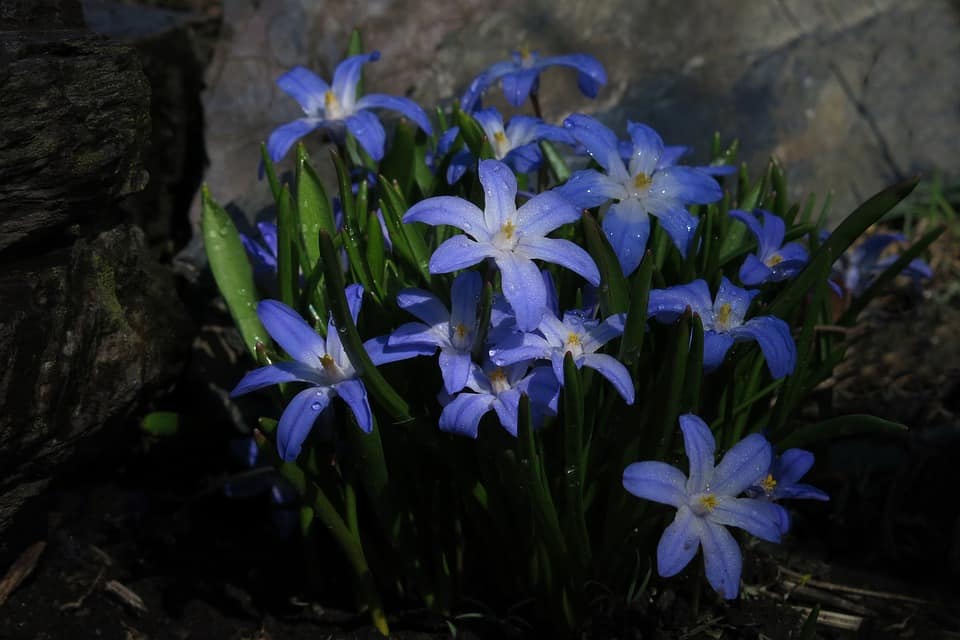
The Chionodoxa are also known as the Glory of the Snow and can even flower when there is snow on the ground.
- Well drained soil
- Full to partial sun
Daphne
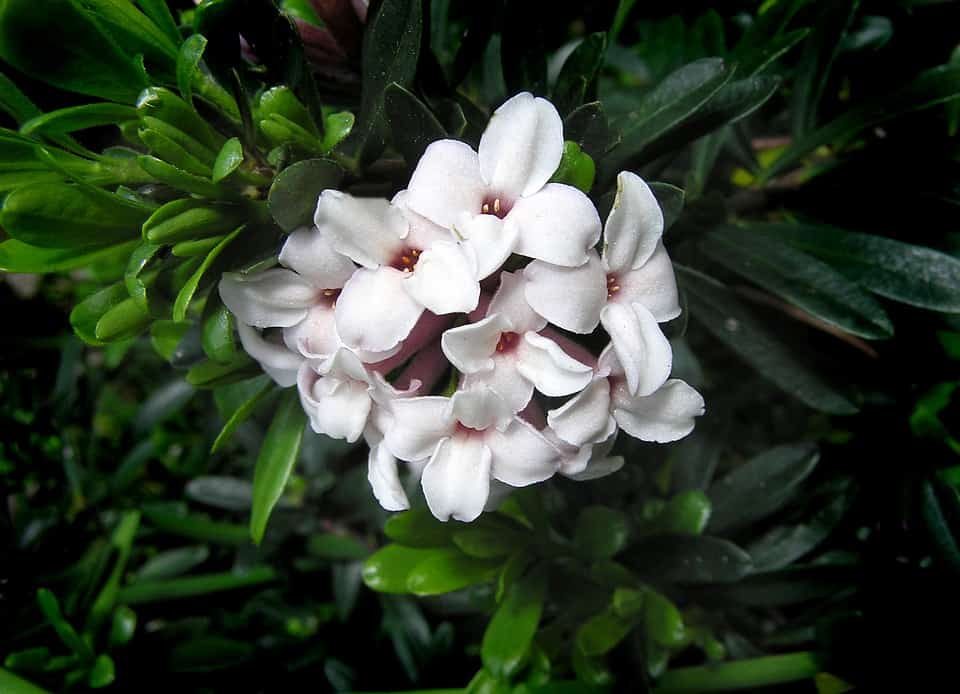
The Daphne shrub have beautiful scented flowers and bright colored berries that will grow in late winter to early spring. Take caution when planting these as all parts of the Daphne are poisonous especially its berries.
- Partial sun to partial shade
- Moist and well-draining soil
- A layer of mulch can help keep the roots moist and cool but make sure the soil doesn’t dry out
English Primrose
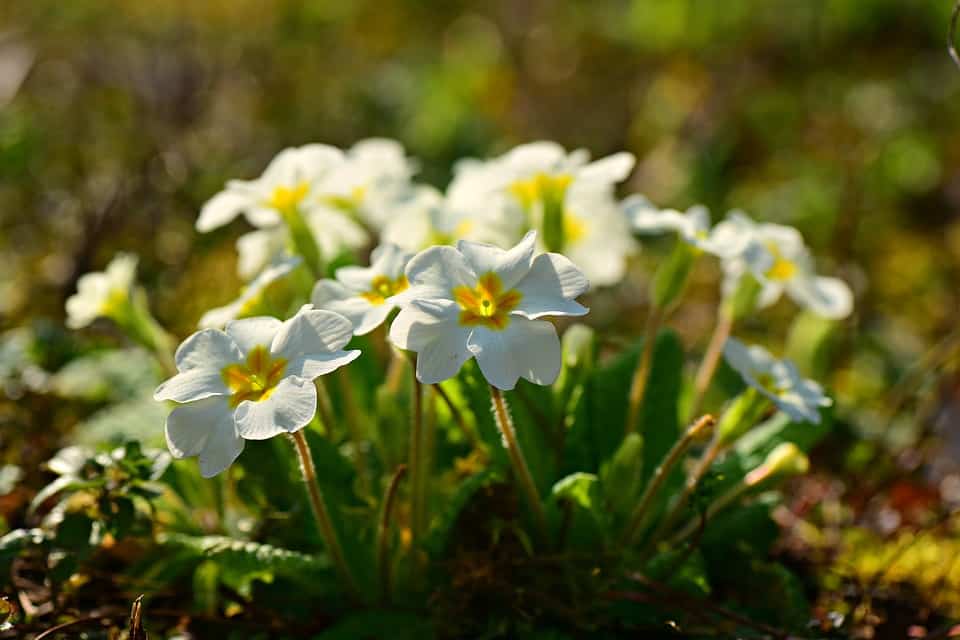
Most primroses will bloom in summer or spring however, the English primrose can grace your garden this winter. They come in various colors and can grow 8-12 inches tall.
- Full sun in cooler climates
- In other climates partial to full shade
- Water regularly
Heather
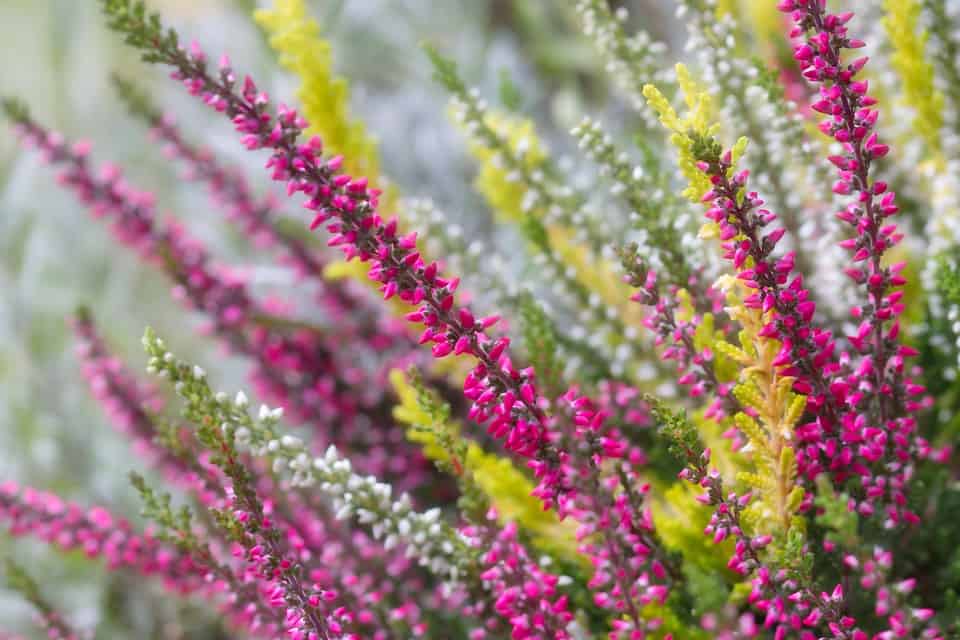
The winter-flowering heather has a low growing texture. It also can make a beautiful potted plant and can come in pink, white, and purple flowers.
- Full sun
- Acidic and well-drained soil
- They can be planted anytime except when the ground is frozen
- They should be protected from cold winter winds
Helleborus
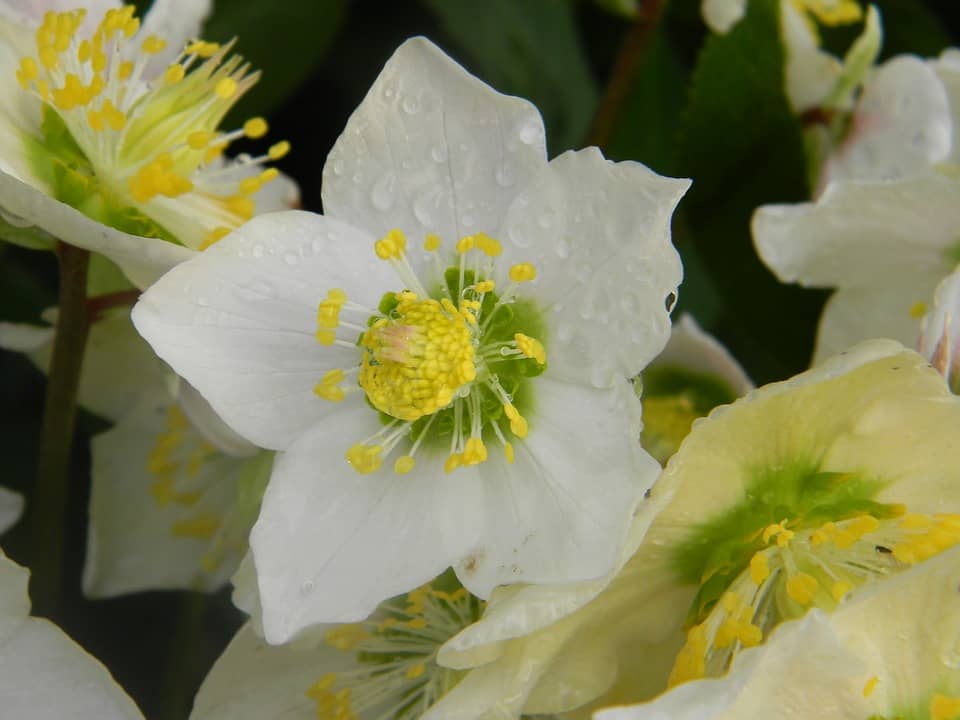
Helleborus is also often referred to as the Christmas Rose because they can flower in the middle of winter. The H. Orientalis varieties can be white, green, and a dark red.
- Partial to full shade
- Well-drained soil
- Water the soil evenly
- Do not fertilize but you can put a layer of compost along the top of them
- In the winter you can also add mulch to protect them
Holly Bushes

Most commonly associated with Christmas time the Holly Bush can make a beautiful addition to your winter garden. Please note that the berries may be tempting they are NOT edible. The holly bush also has a male and female plant and only the female will produce berries.
- Fertilize once a year with a balanced fertilizer
- Water with about 2 inches of water per week
- Add mulch around the base to help retain water in summer and even out soil temperatures in the winter
Mahonia
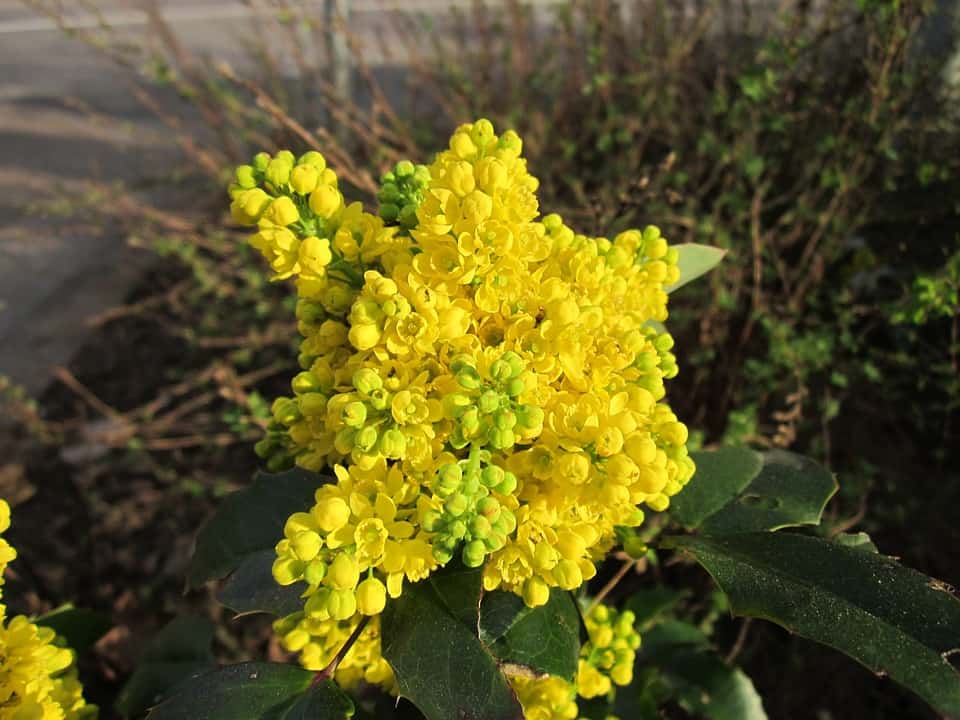
The Mahonia is a beautiful evergreen shrub that will fill your garden with bright yellow flowers throughout the winter.
- Partial shade or full sun
- Water deeply and often and do not allow the soil to dry out
- Fertilize them in March with a slow-release balanced fertilizer
Ornamental Cabbage
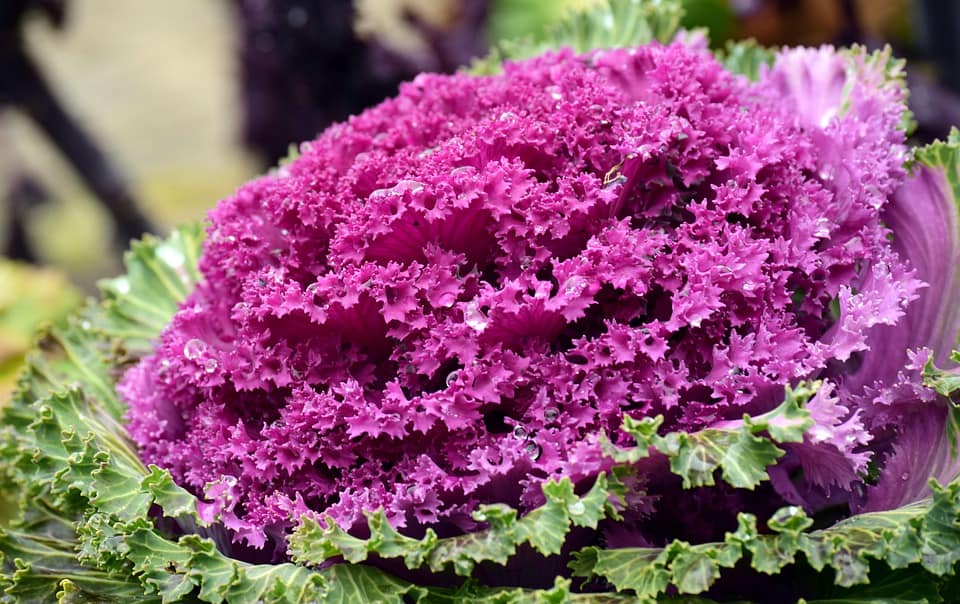
Ornamental Cabbage are great in lower temperatures. The lower the temperature gets the more vivid the colors become.
- Full sun to partial shade
- Slightly acidic soil pH and well draining soil
- Let them dry out between watering
- The can survive frost
Skimmia Japonica
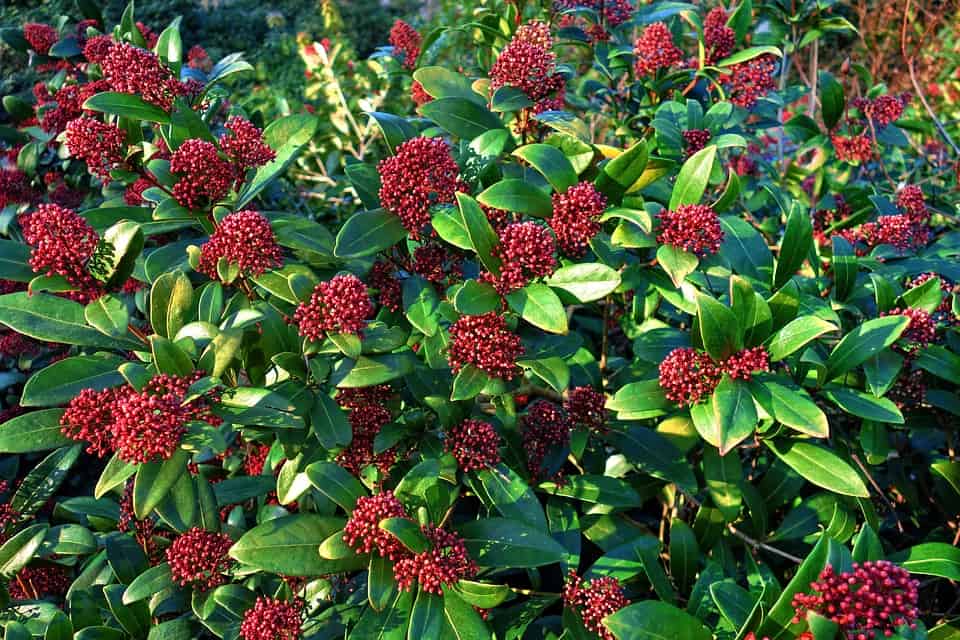
Skimmia Japonica have both a male plant as well as a female plant. If you plant the male and female close enough for pollination the female plants will brighten your landscape with bright red berries in the winter and fall.
- Rich and moist soil with a slightly acidic pH
- Part sun to partial shade
- One male plant can pollinate six females
Snowdrops
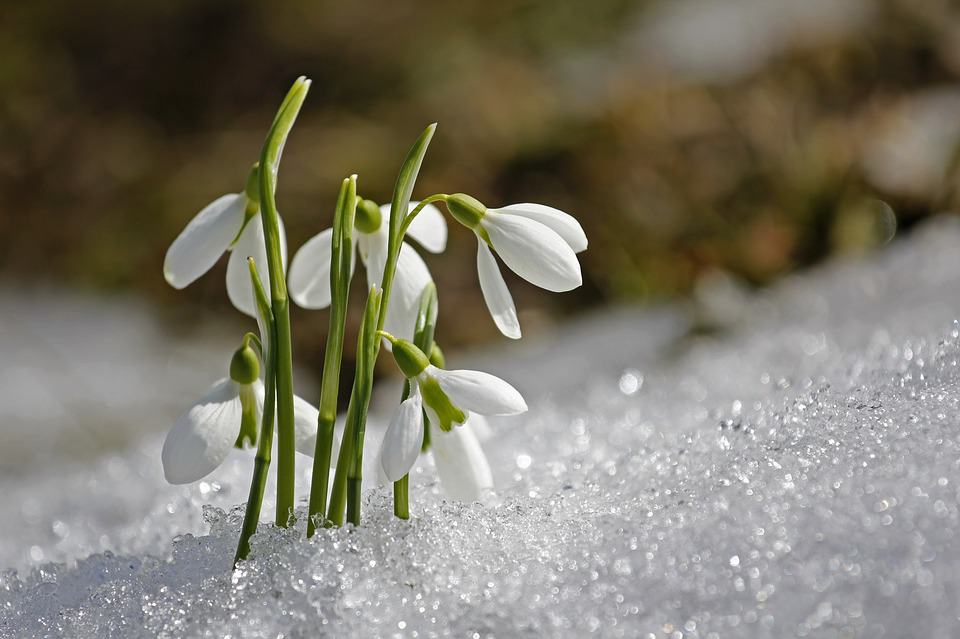
The Snowdrop can be grown in cold winter regions as well as moderate winter regions. They aren’t big fans of warmer climates so if you live in Florida or Southern California this is not the plant for your garden.
- Light to moderate shade
- Well-drained soil
- Water during the fall and winter with a water-soluble fertilizer
Winter Aconite
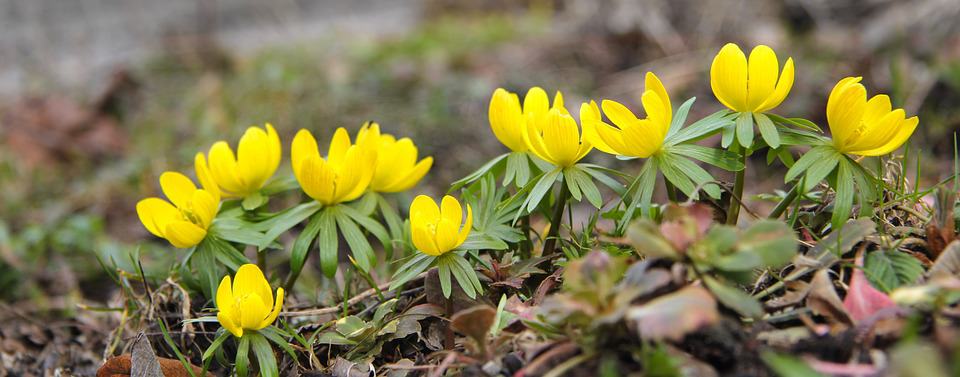
Winter Aconite like the snowdrop will grow from a bulb and will appear among late-winter snows. You will usually see them bloom around February.
- Fertile chalky soil that is well-draining
- Full sun
Winter Jasmine

The Winter Jasmine will start to bloom around January with beautiful blooms. Unlike other Jasmine plants, these do not share the same characteristic scents.
- Full sun
- Well-drained soil
- They can grow 4 to 15 feet
- They may need a trellis or structure to help hold them up
If you love learning about flowers by season, check out our spring, summer and autumn flower guides.